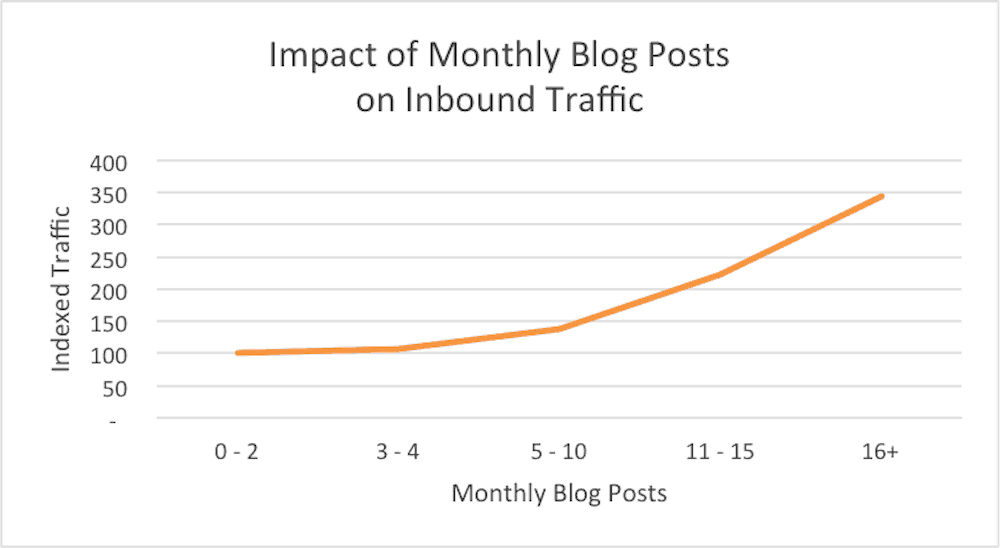Every business or organization has a story to tell, as well as a unique set of services to offer, insights to contribute, and a desire to attract those in need of their goods, products and services. This is why blogs are so popular; they provide a means of telling our stories, conveying our authority, and making ourselves accessible to a wider audience.
But what if we told you that blogs weren’t simply glorified rants or self-serving vanity projects? What if we told you that they had a legitimate place in your marketing strategy, and they they can help you to expand your audience, creating a greater number of leads ready to convert? Well today, we’re going to talk about blogs as a crucial component of your SEO strategy.
Expertise, Authoritativeness, and Trustworthiness
We’ve talked about the Three Pillars of SEO: Expertise, Authoritativeness and Trustworthiness. These are some of the primary metrics Google uses when assessing a website to determine how it will perform in search rankings. Think of a blog as an opportunity to convey each of these characteristics on a regular basis. A recurring series of blog entries means an increased number of URLs (ie: web pages) each of which is another opportunity to catch Google’s eye and showcase yourself as an authoritative and trustworthy expert.
The Value of Blog Posts
Take a look at these numbers from Hubspot, depicting increases in organic traffic as it relates to an increased number of monthly blog posts.
There’s a clear correlation, but this kind of increase is more than just a numbers game. You need to do more than just generate content. You need to create high-quality content, and you need to do so in a strategic manner.
Quality over Quantity
Repeat after me, “quality is key”. It doesn’t matter if you’re holding one bag or standing in the middle of a landfill, garbage is garbage. If we use this as an analogy for content, Google recognizes it and has evolved their search algorithms accordingly. In other words, increasing the number of URLs is meaningless if they offer little-to-no-value.
Google’s goal is to provide its users with the resource most likely to address their query. To do so, they aim to understand both context and intent. Not only will Google favor resources with unique content, it will prioritize resources that best reflect the intent of the user and the content of their inquiry. Make sure you search Google for your keywords, and see what google thinks the intent of that keyword is before stating content.
Google will also recognize content of value based on the engagement of other users. If your site offers insightful and informative articles, it can attract and benefit users, leading to natural inbound links to your site. This is when other sites link to yours, further validating you as an authority.
But I’m Not a Writer
Some of you are probably thinking that. As long as you know what you’re talking about, don’t mistake ‘quality’ for grammatical perfection. Instead, interpret it as your ability to convey your expertise, your authoritativeness and your trustworthiness. Write ‘what you know’ for the audience that you know, and remember that your blogs can be conversational in nature. No-one’s exacting you to write the great American novel. And if you’re really concerned about your writing skills, remember that there are a number of great tools out there like Grammarly that can help to refine your content, improving the grammatical quality of what might already be excellent and valuable.
What Do I Blog About?
The answer to this question will be different for everyone. It will depend on the nature of your business, organization as well as the industry that you exist within. It will depend on the scope of your expertise, as well as the breadth of products and services that you offer.
Begin by identifying what rests at the core of your operation, and then build outward into other subtopics based on your areas of focus. An automotive dealership, for example, might build outwards to explore inventory, financing, service and automotive headlines. A craft brewery might build outward to examine various styles of beers. A florist might build outwards to educate people on the difference between perennials and annuals. Those subtopics will then expand into other subtopics, which will expand into other subtopics from there. The possibilities are endless.
No matter what your business vertical is, you might be surprised by just how easy it is to create content. But why stop there, when you can optimize your strategy by selecting topics with SEO in mind.
Your Keywords
For those unfamiliar, a keyword is a word or phrase used by a search engine to retrieve content that it believes will be useful to the user. For example, someone searching for a place to have lunch might be on Google searching for pizza, subs or salads. Well, if you’re a local eatery that offers such items on your menu, you’ve just identified some keywords worth building on.
When selecting topics, ask yourself: what are Google users most likely to search for? Use that question to inform the topics you choose, the titles of your articles and the ideas, and the ideas that you cover within the article itself. By doing so you’re occupying the overlap between your expertise and the needs of the user and optimizing your content to perform better in search. Of course, there’s a lot more to SEO driven keyword strategy than this; but that’s a conversation for another day.
Your Business Needs a Blog
No exceptions. If you’re looking to attract more business through your online presence, blogging is a crucial component of doing making that happen. In fact, we’re going to draw a hard line in the sand here: if you’re not willing to blog, you’re not ready to discuss SEO.
